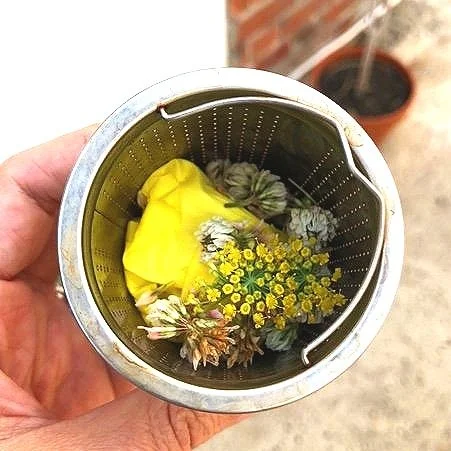Summer Tea
I didn’t drink tea at all until I lived and studied in London 17 years ago. One winter weekend, sick of the relentless business of London life, I escaped to Wakefield with my flatmate to stay with her Dad. The West Yorkshire countryside was covered in snow and we arrived after our very lengthy journey frozen, depleted and generally jaded by life.
As soon as we got in the house my friend’s dad brewed a pot of Yorkshire tea and set it on a tray, along with mugs and a jug of milk. He settled down on the floor, in front of a real, crackling fire and shared the steaming liquid between the three mugs, splashed milk in and then handed them out in silence. In this moment London couldn’t have felt further away.
I was too cold and polite at the time to say I didn’t drink tea (being from Yorkshire myself I don’t think it occurred to my friend’s Dad that I might not drink it, so he didn’t ask). The beverage was tolerable. But what I was instantly head over heels in love with was the ritual; the way we connected in comforting, companionable silence; watching as tea leaves were stirred and seeped, and at last shared between us. The act was as restorative as the drink itself.
Today, as I write this, it is not winter, it is in fact the height of summer, and whilst I adore summer, I’d be lying if I said I wasn’t a little frazzled at the moment. Warm days lead to sleepless nights in my house and summer is busy: more beach days, more transitions as we wrap up this academic year and prepare for the next, more activity in general.
At Forest School it’s felt too hot and dry to light the fire recently, instead we’ve been taking down flasks of hot water and foraging refreshing teas to sip; clover, ground ivy, nettle… A different tea ritual to the one I first experienced all those winters ago but one equally, if not more, restorative and grounding.
As we forage we notice which pollinators and insects are sharing the bounty, which flowers and leaves are fresh and which ones are going to seed. The texture, the smell, all adding to the mindful experience and aiding in successful identification.
The flavours of these teas can be delicate and take some concentration to discern them on the palate. As I write this I’m drinking a clover flower, evening primrose flower and fennel flower tea, all picked from my garden. The fennel flower coming through the strongest: Clover and evening primrose for hormonal balance and fennel for digestion.
I find foraging for summer teas really helps me to notice the abundance that is surrounding us at the moment, as well as reflecting on how busy all of nature is. It gives a few moments of mindful calm amidst the chaos, as any tea, at any time, tends to do.
Do you enjoy foraging, and if so what’s your favourite foraged summer tea?
Laura
Please do be 100% sure of the plant you are picking before responsibly foraging it. Use multiple sources for identification and to verify its suitability for consumption.
